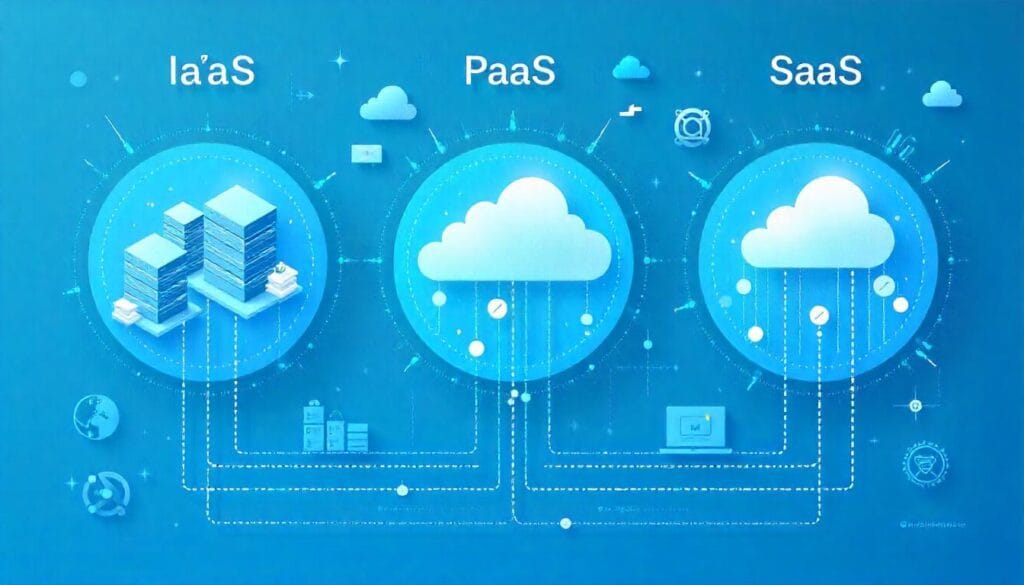Platform as a Service provides a structured yet flexible environment for coding integration Checking and Usement Representations. PaaS enables development teams to focus on Reality Operator Encounter and rapid iteration, making it a cornerstone of modern Use delivery strategies
In this article we’ll explain how Platform as a Service works its main benefits and show why businesses found it important for modern Tech.
What Is Platform as a Service (PaaS)

Platform as a Service is a cloud-based development framework that allows programmers to Make run and scale Uses without dealing with the foundational layers of its infrastructure. The cloud provider handles everything—including the operating system, storage, development tools, and middleware—so developers can concentrate solely on writing and running their code.
In short PaaS offers a ready-to-go environment that eliminates the need to configure Hosts or maintain physical hardware.
How PaaS Works
Instead of Constructing your app on a local machine and worrying about where it will run, PaaS gives you an environment that is always ready for action. here are a few easy steps in the background
1. Instant Access to Pre Built Environments
Once logged in developers are greeted with an environment where the OS runtime and Host are already configured.
2. Native language & tool support
you’ll typically find support for a wide range of programming languages, java ruby python go etc, as well as Combined support for Edition control containerization and ci/cd tools
3. Seamless Usement
Code can be Sended directly from your IDE or Storage to the live cloud environment often with just a few clicks or a CLI command.
4. Smart Supply allocation
as usage fluctuates the platform adjusts computing power automatically, handling traffic surges without manual intervention
5. Fully Managed Backend
The service provider handles updates, patches Web security and uptime, freeing your team from tedious maintenance.
Who Benefits Most from PaaS?
- While Platform as a Service can help any team that develops software it’s notably impactful for:
- Tech startups that want to release MVPs Promptly and cost-effectively.
- Mid-sized firms aiming to streamline internal app development without expanding their IT departments.
- Enterprises modernizing legacy systems or shifting to microservices.
- DevOps and agile teams looking for speed Mechanization and Expandability.
Why Choose PaaS? Core Advantages
Platform as a Service makes app development easier by removing complexity and offering several key benefits:
- Speed to Market: Start projects faster with preconfigured setups.
- Cost Efficiency: There’s no need for upfront spending on hardware or software licenses, making it a more budget-friendly option.
- Collaboration: Cloud-hosted environments enable remote teamwork.
- Built-in Characteristics: From logging to load balancing everything is baked in.
- Auto Scaling: Resources automatically increase or decrease based on real-time demand, ensuring optimal performance without manual adjustments.
- Security & Compliance: Providers offer strong Information protection and compliance standards.
Comparing PaaS, IaaS, and SaaS

Understanding how PaaS fits in with Infrastructure as a Service and SaaS cloud models can clarify your options:
| Model | You Handle | Provider Handles | Best For |
| IaaS | Apps, OS | Servers, Storage | Flexible, custom setups |
| PaaS | Code Only | Everything else | Developers building software |
| SaaS | Nothing | Full stack | End-users using apps like CRM or email |
Platform as a Service strikes a balance—it offers creative freedom to build apps while removing infrastructure headaches.
The Role of PaaS in 2025’s Cloud-First World
The need for fast and flexible development has never been greater. with remote teams becoming the norm and software updates expected weekly (if not daily) businesses need Answers that are scalable secure and fast
Paas fits this bill perfectly by offering:
- centralized tools for distributed teams
- rapid development environments
- consistent uptime and Effectiveness without manual oversight
- it empowers developers to concentrate on solving business problems not system Problems
Final words
As we move deeper into the cloud-native era, paas is no longer a niche tool, it’s a strategic necessity. Whether you’re Starting a new product automating internal workflows or modernizing your tech stack Platform as a Service allows you to Construct smarter not harder.
FAQ
What is PaaS with an Example?
Picture PaaS like renting a kitchen that’s fully equipped and ready to use. It lets developers focus on building and running their apps, while Google takes care of all the backend stuff like servers, storage, and maintenance. developers can upload their code and google automatically takes care of hosting, scaling and updating Supplies behind the scenes. There’s no need to manually configure Hosts or operating systems.
How Does PaaS Differ from SaaS?
The key difference lies in control and intended use:
paas acts like a digital workshop giving developers all the Constructing blocks they need to Make software without having to assemble or maintain the foundation themselves. You write the software and the platform handles everything else, runtime Information Base and Host management.
Example: Azure App Service Heroku.
SaaS provides fully functional software that you can access directly through a web browser or app. the end Operator does develop anything, they just use the service
Example: microsoft 365 dropbox or zoom
In Short:
paas is for Constructing software
saas is for using software
Is Netflix a SaaS or PaaS
Netflix is a saas (software as a service). It delivers on-demand video content through a cloud-based Use. Operators access the service via apps or browsers and don’t have to worry about how it’s built or hosted. There’s no custom software creation involved from the Operator’s side.
What is PaaS To put it simply?
Imagine PaaS as renting a kitchen that’s already fully stocked. you bring your recipe and ingredients (your app code) and the kitchen already has the oven utensils and tools set up for you. You don’t have to Construct the kitchen from scratch or worry about plumbing and electricity, that’s all taken care of.
What Are the Most Trusted PaaS Platforms in 2025?
Some of the most widely used PaaS providers in the industry include:
1. Microsoft Azure App Service
2. Amazon Web Services (AWS) Elastic Beanstalk
3. Google App Engine
4. Heroku
5. IBM Cloud Foundry
Each platform has strengths in areas like language support, Expandability integration with DevOps tools and developer Encounter.

Ethel Bartoletti is a Texas-based tech journalist who enjoys breaking down cloud and technology news into clear, relatable updates. Living in Dallas, she focuses on helping readers stay informed about the latest trends and innovations shaping the digital world.